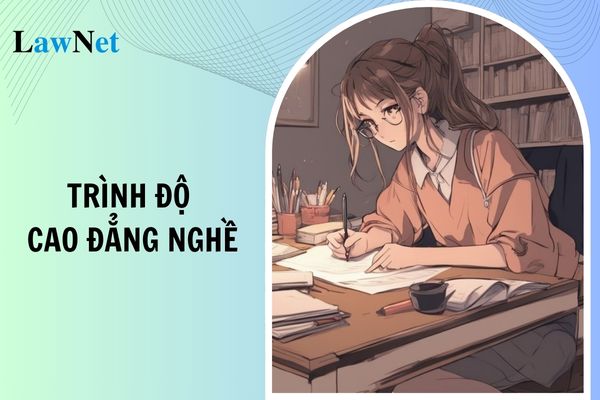How many credits is the minimum body of knowledge for the vocational college level in Vietnam?
How many credits is the minimum body of knowledge for the vocational college level in Vietnam?
Under Article 4 of Circular 12/2017/TT-BLDTBXH, the minimum body of knowledge for intermediate and college levels is specified as follows:
Minimum body of knowledge for intermediate and college levels
1. Intermediate level
a) The minimum body of knowledge for the intermediate level is 35 credits for those with a high school diploma, 50 credits for those with a secondary school diploma, and the training duration ranges from 1 to 2 academic years depending on each training major.
b) The body of theoretical knowledge and practical skills according to each training major must ensure the ratio: theory comprises 25% - 45%; practice 55% - 75%.
2. College level
a) The minimum body of knowledge for the college level is 60 credits and the period of study ranges from 02 to 03 academic years depending on each training major.
b) The body of theoretical knowledge and practical skills according to each training major must ensure the ratio: theory comprises 30% - 50%; practice 50% - 70%.
Thus, the minimum body of knowledge for the vocational college level is 60 credits, with a training duration ranging from 02 to 03 academic years depending on the training major.

How many credits is the minimum body of knowledge for the vocational college level in Vietnam? (Image from the Internet)
What are the competency requirements for graduates of the vocational college level in Vietnam?
Under Clause 2, Article 5 of Circular 12/2017/TT-BLDTBXH, the competency requirements for graduates of vocational college level are:
Learners must be capable of performing the tasks of the intermediate level and solving complex tasks in their training major.
Additionally, learners must be capable of creating and applying modern technology to their work and guiding and supervising others in a group to perform tasks. To be specific:
* Knowledge:
- Broad practical and theoretical knowledge within the scope of the training major;
- Basic knowledge of politics, culture, society, and law to meet the professional and social activities requirements in their specialized field;
- Knowledge of information technology to meet job requirements;
- Practical knowledge about management, principles, and methods for planning, organizing, implementing, supervising, and evaluating processes within the training major.
* Skills:
- Cognitive skills and creative thinking to identify, analyze, and evaluate information within a broad scope;
- Professional practical skills to solve most of the complex tasks within the training major;
- Skills to effectively communicate information, ideas, and solutions to others at the workplace;
- Proficiency in foreign languages level 2/6 according to the Vietnamese Foreign Language Competency Framework.
* Autonomy and Responsibility:
- Work independently or in groups, solve complex work tasks, problems in changing working conditions;
- Guide, and supervise others to perform defined tasks; assume personal and group responsibility;
- Evaluate work quality after completion and assess the performance of group members.
What are the objectives for formulating regulations on the minimum body of knowledge required for graduates of the college level in Vietnam?
Under Article 6 of Circular 12/2017/TT-BLDTBXH, the objectives for formulating regulations are as follows:
Formulation and issuance of regulations on the minimum body of knowledge and competency requirements for graduates of intermediate and college levels in each training major aim to:
- Disclosure to society, learners, and employers about the standard of professional competence, specialized knowledge, practical skills, ability to perceive and solve problems, and the type of work learners can undertake upon graduation at each level of education by each training major.
- Strengthen the relationship and cooperation between educational institutions and enterprises in training and utilizing labor to meet the demand of enterprises and the labor market.
- Serve as a basis for schools to develop, adjust, and supplement training programs to conform with regulations on the minimum body of knowledge and competency requirements learners must achieve after completing the intermediate or associate degree in each training major.

